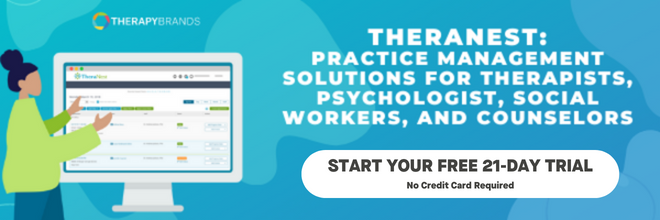
Emotional regulation is a skill that everyone needs no matter what they are facing in life. Sometimes the circumstances individuals face, no matter how big or small, lead to an overwhelming emotional toll that not everyone knows exactly how to deal with. The most common moments that people require emotional regulation skills are when they are facing some sort of pain, hurt, anger, sadness, or any number of negative feelings.
Emotional regulation refers to an individual’s actions, conscious or unconscious, that help them control or “regulate” their current emotional experience. For example, if an individual struggles with anxiety, their ability to calm themselves down or self-soothe equates to their ability to self-regulate. In day-to-day life, emotional regulation skills enable individuals to deal with and manage the many stresses of life in a healthy and constructive way rather than feel stuck in whatever is overwhelming them at that time.
The Importance of Being Able to Self-Regulate Emotions
Being able to self-regulate one’s emotions is important for a vast number of reasons. In the short term, the ability to regulate enables someone to remain level-headed or feel better in the midst of stress or emotional turbulence. In the long term, emotional regulation can impact overall happiness and wellbeing, enable individuals to lead more productive lives, have a positive impact on personal relationships, and so much more.
This skill is closely tied to sensory and emotional processing, which plays a huge role in the overall mental health of a person. With healthy self-regulation and coping skills, individuals are able to think more clearly through situations where their gut reaction might not be a helpful one.
Following the same anxiety example as earlier, should a person find themselves on the edge of a panic attack, emotional regulation partnered with other skills might help prevent them from being submerged by that panic. The ability to calm one’s self or distance oneself self from intense emotions prevents someone from being overcome by them.
Consequences of Poor Skill Development of Emotion Regulation:
When someone does not have good emotional regulation skills, this is referred to as emotional dysregulation. Dysregulation can happen for a number of reasons but is most often a result of a failure to learn the skills needed to self-regulate during childhood.
An example of someone experiencing dysregulation might be an individual with anger issues, panic disorders, or any other condition in which they feel their emotions have a hold on them, not the other way around.
Dysregulation can lead to issues like poor personal relationships, poor performance, poor social skills, depression, increased anxiety, and more. Children are more likely to develop emotional dysregulation if their caregiver also lacked the ability to self-regulate. This is because this technique needs to be taught and learned throughout cognitive development and is not inherent to every person.
For children who are showing signs of emotional dysregulation, there are activities that can help them learn those skills for their future.
Emotion Regulation Activities for Younger Children
1) Mindful Breathing
There are a number of mindful breathing techniques that can help an individual learn to self-regulate no matter their age. For children, it might be helpful to turn breathing techniques into a came, or something imaginative, that can help the child connect with the exercise and remember to use it when big emotional responses present themselves. For example, there is an exercise called dragon breathing where the child learns to take deep breaths and release anxiety or feelings of being overwhelmed.
2) Superhero Pose
Another great exercise for children who lack the ability to self-regulate is to introduce skills that build confidence. Confidence is a great tool to help an individual find footing when facing deep emotional experiences. Therapists should teach their child clients to stand in a variety of superhero poses that help them feel confident and strong in moments where they might feel like giving into strong negative emotions.
Emotion Regulation Activities for Teens
1) Confidence and Assertiveness
For teens experiencing emotional dysregulation, teaching confidence-building skills along with assertiveness skills can not only help them learn to stand tall when communicating with others but also when communicating with themselves. For example, if a teen is feeling a strong negative emotion coming forward in their mind, they can utilize these skills to draw personal emotional boundaries. Therapists can role-play different situations where the teen must practice being confident or assertive with their boundaries.
2) Emotion Identification and Awareness
Oftentimes, when a teen is feeling any sort of negative emotion that they do not know how to identify or communicate, it can come out in other negative ways. For example, if a teen is feeling frustrated with a situation with a friend, rather than be able to communicate with that friend what they are feeling, they end up just exhibiting characteristics of someone who is angry or crabby. Teaching teens emotional regulation should involve helping them be able to identify their emotions in the first place and being self-aware for when big emotions come up. Therapists can teach their teenage clients to identify emotions using an emotions wheel or chart, allowing them to point at what best describes their current emotional state.
Emotional regulation skills play a huge role in an individual overall mental and emotional wellbeing as they grow into an adult. When these skills are not learned by caregivers, therapists can still make a difference.

